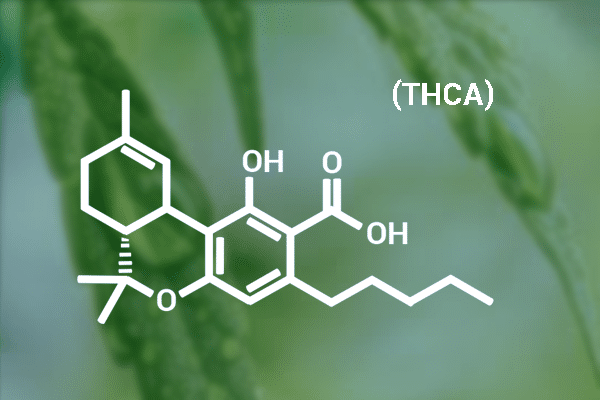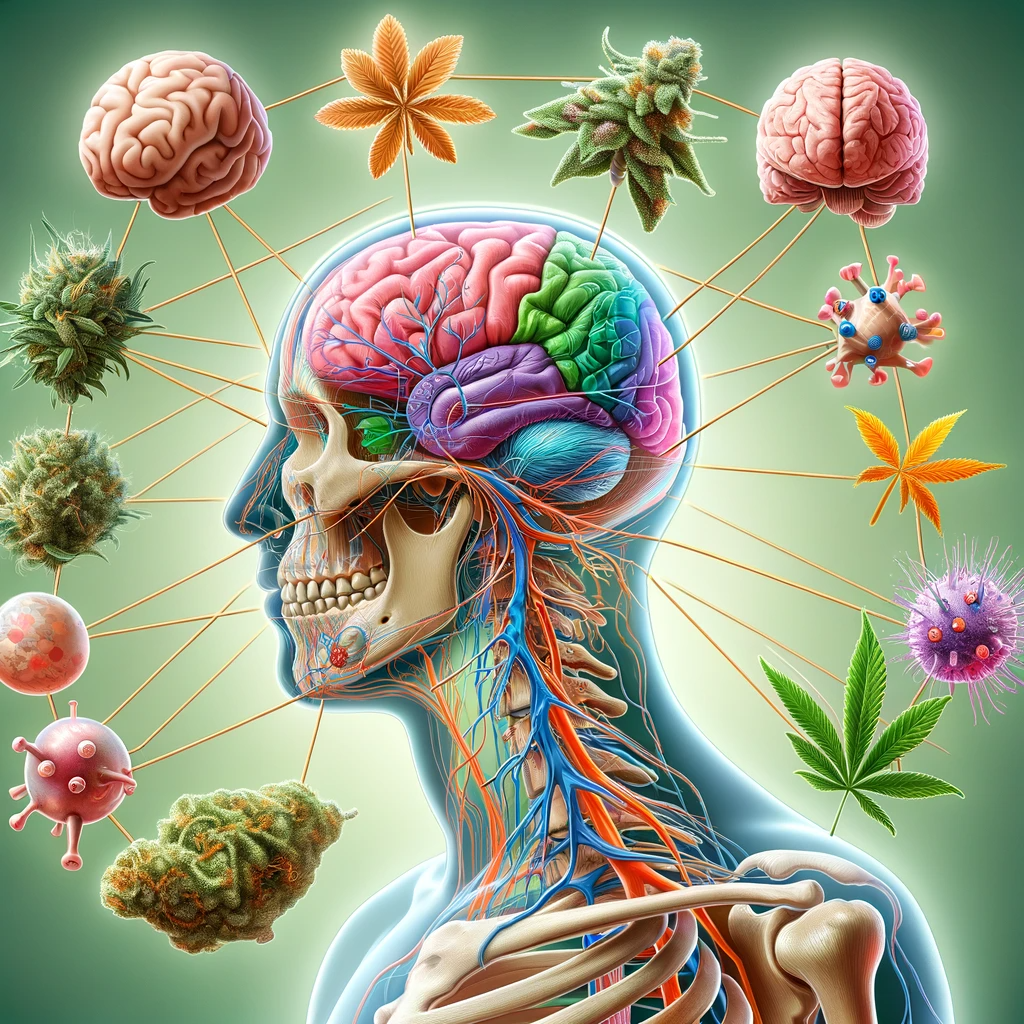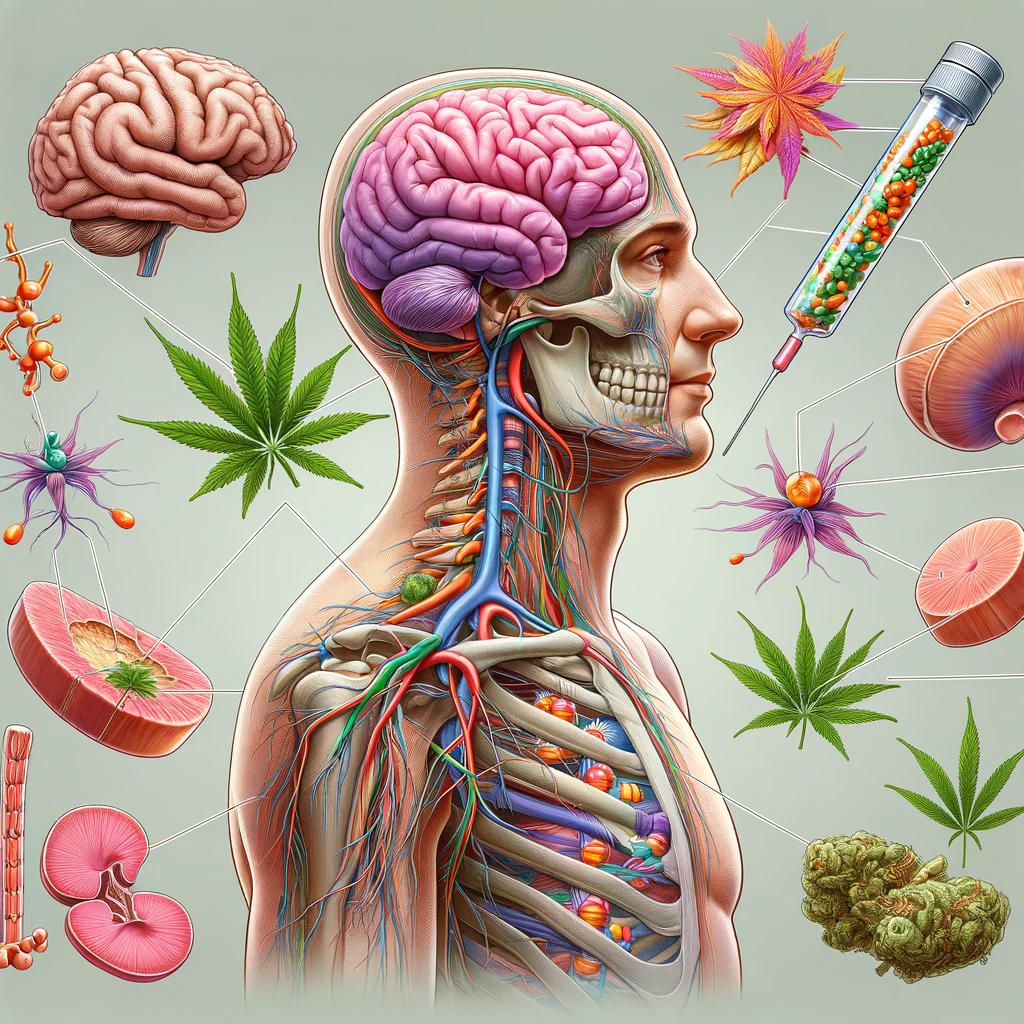THCA, short for tetrahydrocannabinolic acid, is a naturally occurring compound found in cannabis. Although THCA itself isn’t psychoactive, it plays a crucial role in converting into THC – the compound responsible for marijuana’s intoxicating effects. Today, we delve deeper into THCA and its short- and long-term impact on the body and provide insight into how long it may stay in your system.
What is THCA?

THCA is a non-intoxicating cannabinoid present in raw cannabis plants. It is abundant in strains like cannabis Sativa and Indica. When exposed to heat, typically through combustion or vaporization, THCA decarboxylates and converts into THC. Consuming raw or unheated cannabis predominantly offers THCA’s potential benefits, such as anti-inflammatory and neuroprotective properties, without the typical “high” associated with THC.
Short-Term Effects of THCA
Although THCA does not produce the euphoria associated with THC, it may still have noticeable effects when consumed in large amounts. These effects may vary from person to person but can include relaxation, enhanced mood, and potential relief from symptoms like pain or inflammation. However, it’s important to note that more research is needed to understand the extent of these effects fully.
Potential Long-Term Effects of THCA

The long-term effects of THCA are still under investigation. However, it is believed that THCA, along with other cannabinoids, may have potential health benefits. Some research suggests that THCA exhibits anti-inflammatory properties, which could benefit conditions like arthritis. THCA may also have neuroprotective properties that could help with Parkinson’s disease or multiple sclerosis. However, further studies are required to validate these claims.
Duration of THCA in Your System

Determining the exact duration THCA stays in your system can be tricky as it depends on various factors. One crucial factor is the method of consumption, as it affects the absorption and elimination rate. Here are some estimated time frames for different methods of consumption:
Inhalation
When THCA is heated and inhaled, it rapidly converts into THC. The effects are felt almost immediately, but the duration may last only a few hours. However, THCA itself is unlikely to be detected in drug tests, as tests generally look for THC metabolites.
Oral Consumption
Ingesting THCA orally, perhaps by consuming raw cannabis or THCA-infused products, takes longer for the effects to kick in, typically within 30 minutes to 2 hours. The duration of the effects can last for several hours, potentially up to 6-8 hours. However, it’s important to note that THCA is not psychoactive, so the effects experienced will be different from THC.
Topical Application
THCA-infused topicals are gaining popularity in the wellness industry. When applied to the skin, THCA does not enter the bloodstream, making it unlikely to have systemic effects or be detectable in drug tests. Instead, it primarily targets localized pain or inflammation.
Metabolism and Individual Factors
The duration of THCA in your system also depends on factors like metabolism, body mass, and frequency of use. Additionally, chronic use of cannabis may result in the accumulation of THC metabolites in the body, which may be detectable in drug tests for an extended period.
Why Does THCA Stay in Your System?

THCA is a precursor to THC and undergoes decarboxylation when exposed to heat. This process converts THCA into THC, which is then metabolized by the body. However, THCA itself is more stable than THC and has a longer half-life. As a result, it can be detected for a more extended period in the body, especially in chronic users. THC metabolites typically remain detectable in urine for about 3-30 days, depending on usage patterns. However, it’s crucial to note that drug tests primarily look for THC metabolites, not THCA itself.
Best Place To Find THCA Products?
Looking for high-quality cannabis products? Look no further than WNC CBD. With a wide selection of top-tier products from well-known brands, WNC CBD stands out from the competition. Their online store makes finding the perfect product a breeze, with detailed descriptions and images for each item. From tinctures and oils to edibles and vaping options, WNC CBD has it all at competitive prices.
Shopping with WNC CBD is easy and secure, thanks to their user-friendly website and phone ordering system. Not only do they offer exceptional product quality and unbeatable prices, but they also prioritize personalized customer service. Their friendly and knowledgeable staff are dedicated to providing you with the perfect product and the information you need. WNC CBD goes above and beyond to meet all your cannabis needs.
Ready to give WNC CBD a try? Use coupon code TRY15 to enjoy a 15% discount on your next order. Don’t miss out on this great opportunity.
How Long Does THCA Stay In Your System? – Conclusion
THCA, a non-intoxicating compound found in cannabis, has potential health benefits and minimal psychoactive effects. While research is ongoing, it is believed to possess anti-inflammatory and neuroprotective properties. The duration of THCA in your system varies depending on the method of consumption, individual factors, and the presence of THC metabolites.
However, THCA itself is unlikely to be detectable in drug tests, as they primarily focus on THC metabolites. Understanding the effects and the duration of THCA in your system can help you make informed decisions about cannabis consumption.
